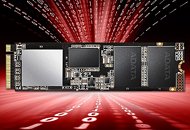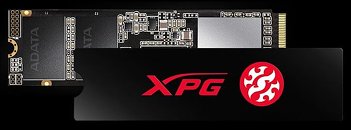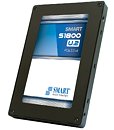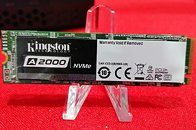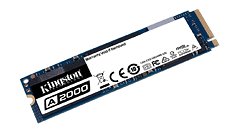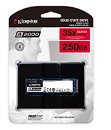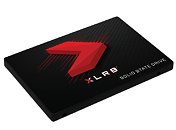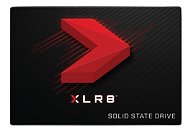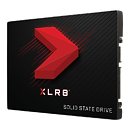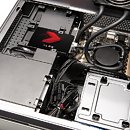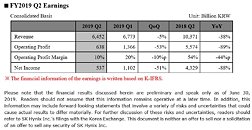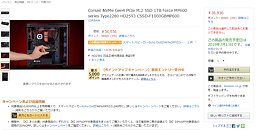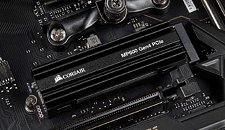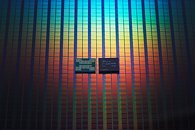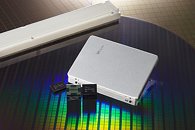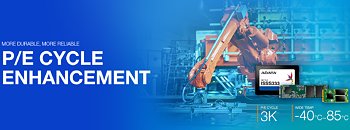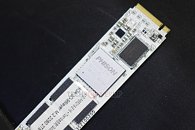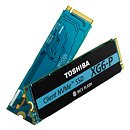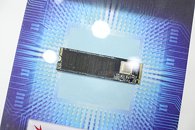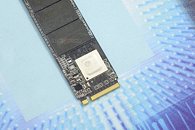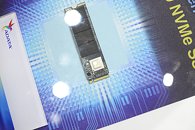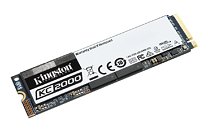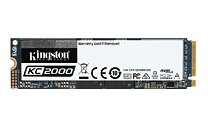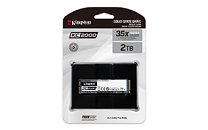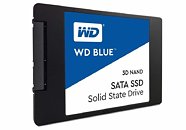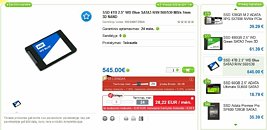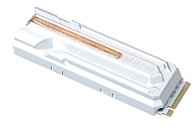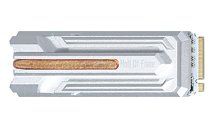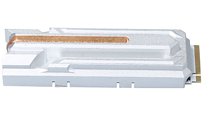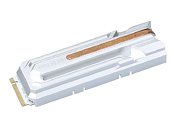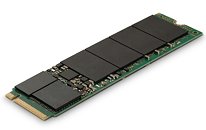
ADATA Launches 2 TB Version of Its XPG SX8200 Pro NVMe SSD
Amidst falling prices of NAND flash and increased desirability from users' part, companies have been expanding their portfolio of SSD offerings for the consumer side of the fence as well as the enterprise one. ADATA's XPG SX8200 Pro SSD was initially only offered in 256 GB, 512 GB, and 1 TB configurations, but in the case of SSD storage, "moar" is usually better. We'll see when do 256 GB offerings get discontinued, but I'd give it another pair of years at the most.
The ADATA XPG SX8200 Pro features Silicon Motion's SM2262EN controller packing eight NAND channels, four ARM Cortex-R5 cores, support for NVMe 1.3, LDPC ECC, RAID engine et all (eh), paired with Micron's 3D TLC NAND - no QLC here, folks. The SSD offers up to 3.5 GB/s sequential read speed and up to 3 GB/s sequential write speed, and up to 360K random read/write 4K IOPS. The ADATA SSD features a TBW rating of 1280 TB over a 5-year warranty period - and a MTBF (Mean Time Between Failures) rate of 2,000,000 hours (something like 83.333, 33 (3) days of continuous usage. Now that's north of two hundred years of continuous operation, which makes me sad just thinking about it and what I'd do with that time. In another conscience state, perhaps. ADATA's 2 TB XPG SX8200 Pro is $289.99, in select European countries (from eBay) at about €308, and in Japan for ¥36,680.
The ADATA XPG SX8200 Pro features Silicon Motion's SM2262EN controller packing eight NAND channels, four ARM Cortex-R5 cores, support for NVMe 1.3, LDPC ECC, RAID engine et all (eh), paired with Micron's 3D TLC NAND - no QLC here, folks. The SSD offers up to 3.5 GB/s sequential read speed and up to 3 GB/s sequential write speed, and up to 360K random read/write 4K IOPS. The ADATA SSD features a TBW rating of 1280 TB over a 5-year warranty period - and a MTBF (Mean Time Between Failures) rate of 2,000,000 hours (something like 83.333, 33 (3) days of continuous usage. Now that's north of two hundred years of continuous operation, which makes me sad just thinking about it and what I'd do with that time. In another conscience state, perhaps. ADATA's 2 TB XPG SX8200 Pro is $289.99, in select European countries (from eBay) at about €308, and in Japan for ¥36,680.
